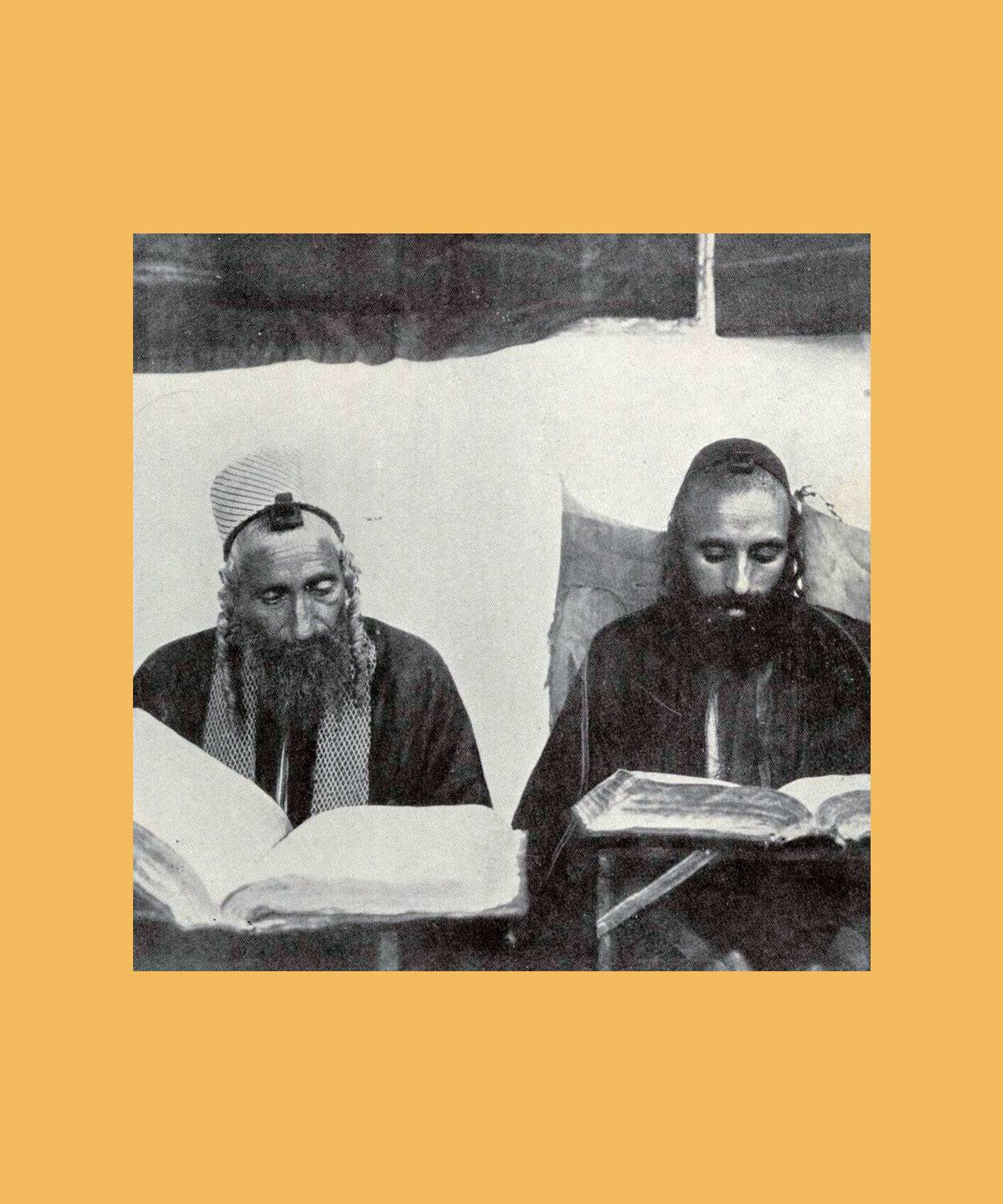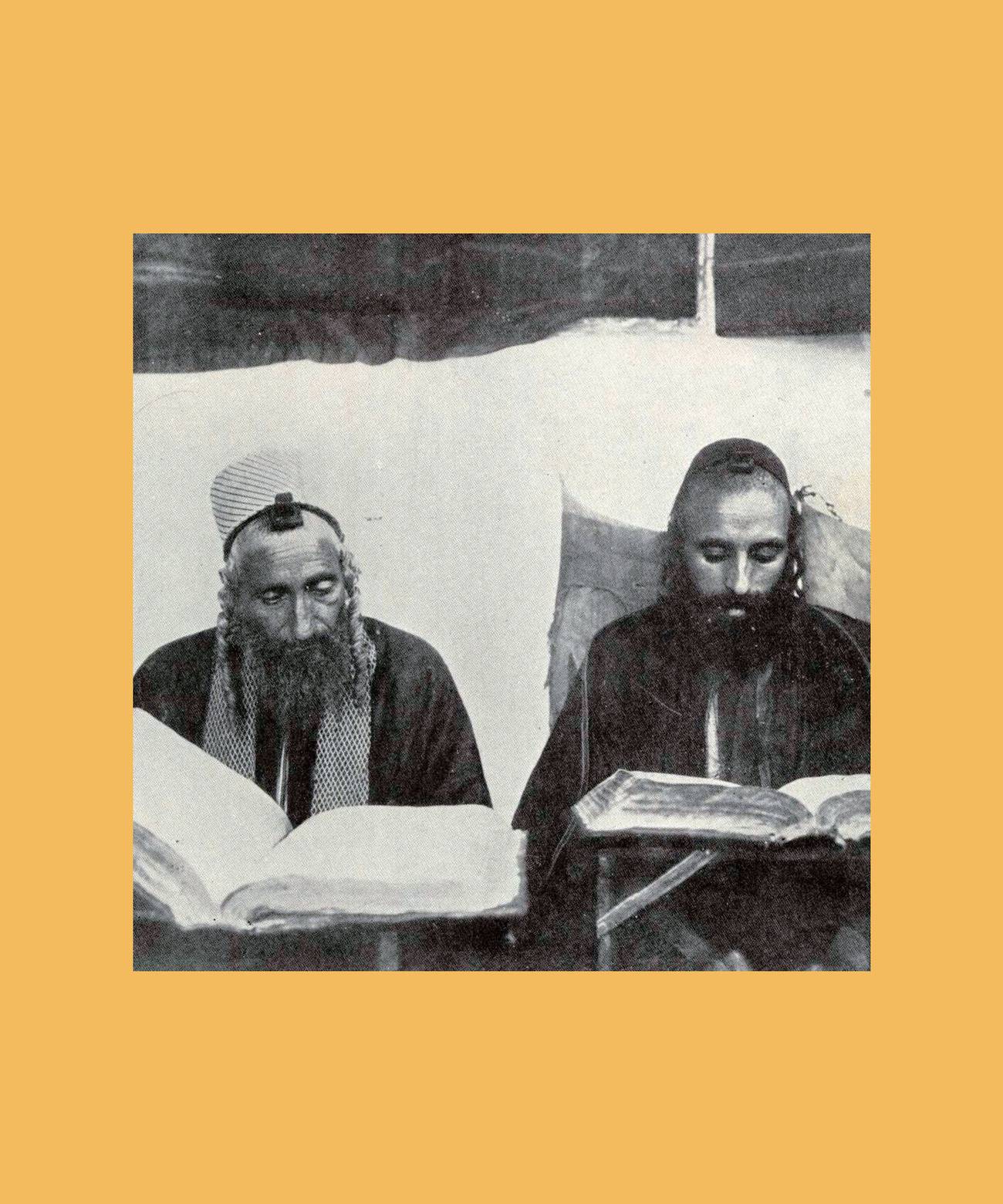Poem of the Week
‘A Definition’

Inset image: Wikipedia

Inset image: Wikipedia

Inset image: Wikipedia

Inset image: Wikipedia
This magnificent poem will take you by surprise. In quick brushstrokes it gently invokes the whole world of religious Judaism—written Torah, the Talmud or the Oral Law, observance, commentary, prayer—and then, in a snap of a dash, it is all taken away. The orderliness of the poem stops right at the edge of the cliff, at the edge of chaos. The poet is not only a careful student of religious thought, or rather religious thought at the edge of nothingness, but also a student of Emily Dickinson, whose shadow surely lurks in the poem’s final dash. —Jake Marmer
The Torah was given
over a span of forty years.
The words we have today,
and the marks appearing over letters, are the same
as when first made.
We find the oral law
in spaces between words.
Opinions took place in those windows.
And we learn from the questions,
spreading our hands beneath an infinite roof.
We try to practice the laws we were given
and we give back.
We pray, grateful or angry, longing,
attempting to know the invisible
without which—
This poem was originally published in a chapbook, The House of Our First Loving, published by Rack Press.
Eve Grubin is the author of Morning Prayer, The House of Our First Loving, and Grief Dialogue. Her next book of poems, Boat of Letters, will be published by Four Way Books in 2025. She is a lecturer at NYU in London and a tutor at the Poetry School.